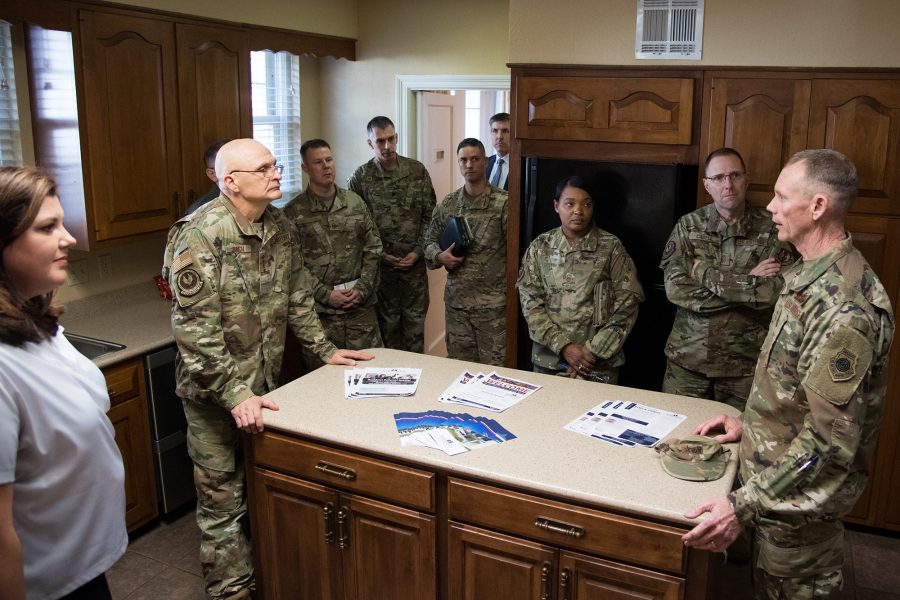Top Pentagon leaders signed the Military Housing Privatization Initiative Tenant Bill of Rights on Feb. 25, codifying steps to empower service members and families residing in homes owned by private landlords.
The document, mandated by the fiscal 2020 National Defense Authorization Act, comes after a slew of problems in military housing, including mold, fire code noncompliance, vermin, and other issues.
Effective May 1, the Pentagon commits to providing the full benefit of the following 15 rights, according to the document:
- To live in a housing unit and a community that meets applicable health and environmental standards.
- To have working fixtures, appliances, and utilities in housing units, as well as well-maintained common areas and amenities.
- To a lease with clearly defined terms, including any addendums and other regulations.
- To a plain-language briefing, before signing a lease and 30 days after move-in, by the installation housing office on all rights and responsibilities, including information on any additional fees, any utilities payments, procedures for work orders, the identity of the military tenant advocate, and the dispute resolution process.
- To have sufficient time to prepare and be present for move-in and move-out inspections.
- To report inadequate standards to the landlord, the chain of command, and housing management office without fear of reprisal or retaliation.
- Access to a military tenant advocate or a military legal assistance attorney, through the housing management office of the installation of the department to help with dispute resolution.
- To receive property management services provided by a landlord that meet or exceed industry standards.
- To have multiple, convenient methods to communicate directly with maintenance staff, and to receive consistently honest and responsive communications.
- To have access to an electronic work order system to request maintenance or repairs.
- To prompt and professional maintenance and repair; to be informed of the required time frame for maintenance or repairs; and if necessary to prompt relocation into suitable lodging or other housing at no cost to the tenant until the maintenance or repairs are completed.
- To receive advice from military legal assistance on procedures involving mechanisms for resolving disputes including mediation, arbitration, and filing claims against a landlord.
- To have advance notice of any entrance by a landlord, installation housing staff, or chain of command, except in the case of an emergency or abandonment.
- To prohibit non-refundable fees or to have application of rent credits arbitrarily held.
- To expect documents, forms, and processes for housing units will be the same for all installations, to the maximum extent applicable.
The Pentagon is working with companies and Congress on three additional rights: access to maintenance history, process for dispute resolution, and withholding of rent until disputes are resolved.
Thirty-two of the military’s 79 privatized military family housing projects are in the Air Force, with 14 companies managing housing for all of the Defense Department. One company in particular, Balfour Beatty Communities, has repeatedly been criticized and has been blocked from receiving incentive pay. In January, federal agents raided the company’s office at Tinker Air Force Base, Okla., as part of an asbestos contamination probe. The company runs about 300 units on the base, which all need repairs.
The Air Force is working to address thousands of fixes, and the results of an investigation into its privatized housing has been submitted to Capitol Hill. The service is also ensuring all homes have been properly maintained before new tenants move in, an increase from the previous policy of inspecting just 10 to 20 percent of units before move in, Air Force Secretary Barbara Barrett told lawmakers in December.
“We cut too many personnel who provided oversight for projects and failed to fully empower the chain of command to own and fix these issues,” Barrett said. “As a result, housing problems have distracted from the Air Force mission. They have disrupted our airmen and dislocated their families. This is unacceptable.”
